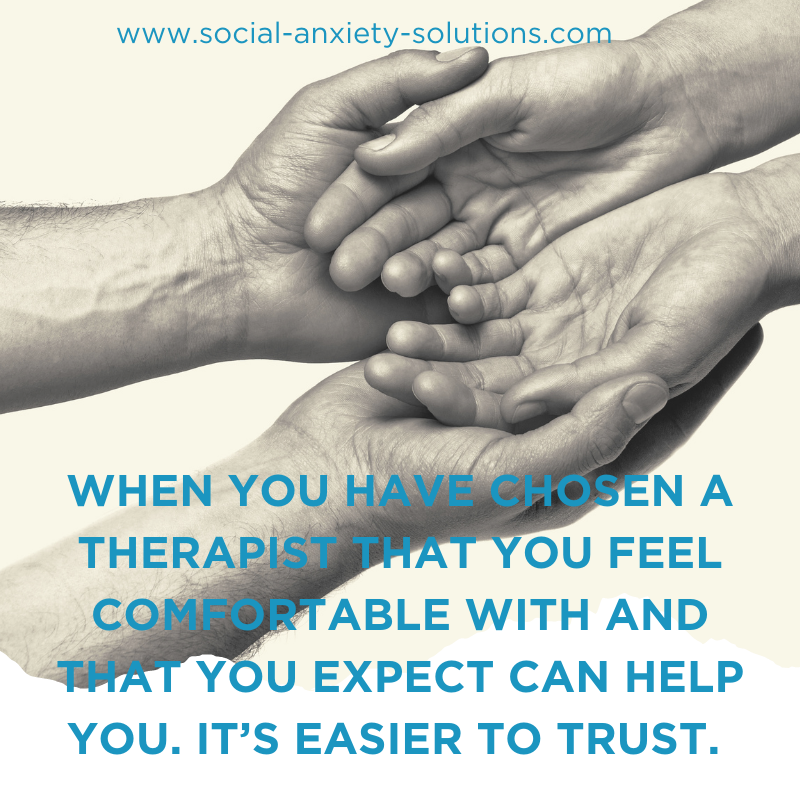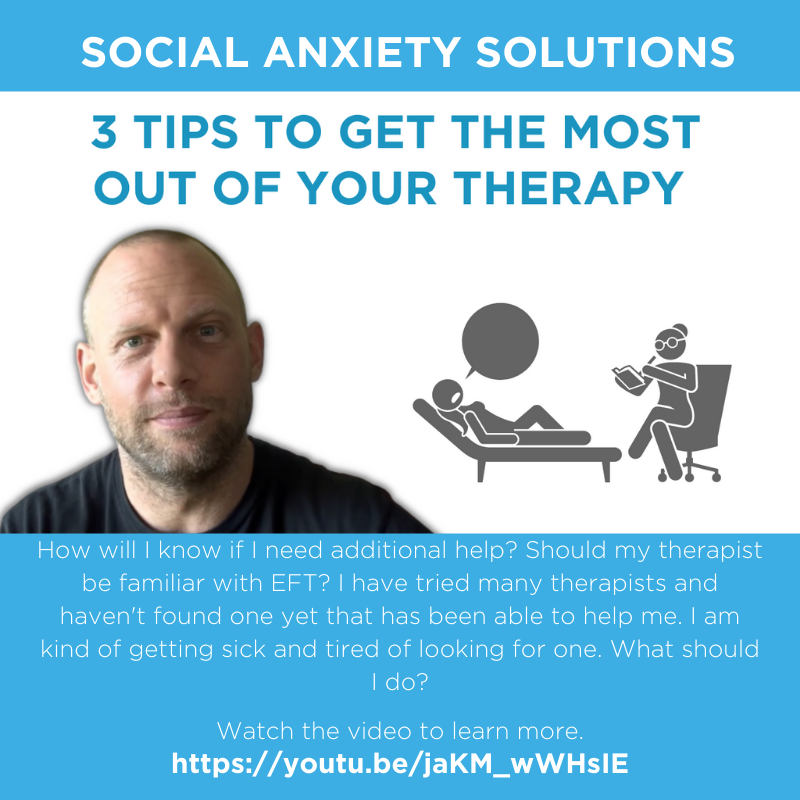SUMMARY
People whose having therapy sessions, coaching sessions, or healing sessions often feel doubtful whether or not they are going to express or share everything during their sessions.
Why?
It’s not just because you have cold feet during your sessions…
It’s not just because it was your first time doing the sessions (assuming it is)…
It’s not just because the setting is not right…
…it’s also because there are factors that you need to consider in order to get the best out of your therapy, counseling, healing sessions.
And in this episode, I will be sharing with you 3 Tips to get the most out of your sessions.
Check it out!
Enjoy!
FULL TRANSCRIPTION
Three tips to get the most out of your therapy, coaching, healing session.
Alright! My name is Sebastiaan van der Schrier. I’m a former Social Anxiety disorder sufferer. And a Social Confidence coach.
I’ve been coaching people with social anxiety since 2009. I logged about 5000 coaching hours.
And I’m also someone who’s been on the receiving end of a lot of therapy, coaching, healing transformation sessions — hundreds of them.
And over the years, I’ve learned how to be an ideal client. Because I know what is helpful for me as a coach to have as a client.
And I know the process that I’ve gone through as a client myself.
So, I’m going to share with you three tips to get the most out of it. To get the best results possible, the quickest.
Number one, and I’ve made a video about this before, is: Choose the right person for you
Since I already made a video about that, I’m not going to say too much about it.
The only thing I want to say is, this is the most important thing.
You’re looking for someone that you’re comfortable with and that you have a sense, an expectation that that person can help you.
That’s the main thing that you’re looking for there.
Moving on to tip number two: Be totally open and honest.
Now, what do I mean by that?
Well, as you’re going through a session, all sorts of stuff will come up. And there might be things that come up for you that are very uncomfortable to say, admit, acknowledge, and speak.
And it’s helpful to say it to either say it anyway or to say to your therapist, “hey, something has come up for me, and I feel uncomfortable talking about it. But there is something there, whatever that might be.”
So, you want to be open and honest about your experience.
And you can still honor your boundaries by saying what I just suggested because you can then explore with your therapist. I’ll just say, therapist or coach. I say therapist, but it can be coach, it can be counselor, it can be helper, whatever.
Then, together with your therapist, you can explore why it is so scary that thing comes up for you.
And often, for example, I know that I’ve had that before as a client, so when I sense my client to have something like this like I see, something has popped up for him. Still, he’s not really speaking it. I’ll simply say, “Hey, if there is something that’s upsetting you right now, but you don’t really feel comfortable speaking it, just let me know. And we can work around it, or we can work on it without having the actual content.”
And so, you can bring things in that you can bring things up in that way. Because maybe not in your first session or first couple of sessions, you’re going to have that level of comfort and trust with your therapist.
It might be something that you need to build up over time before you actually start to admit certain things.
Keep in mind that a lot of the crap in your head is just that – crap in your head. Most of it is not really real. And a lot of the intense feelings are actually old, outdated feelings, archaic emotions that are stuck from when you’re six years old, that you’re reliving, and thoughts that are haunting you. And they’re actually, usually quite irrational and blown out of proportion, not really real.
But it still can feel really, really scary to say to them that you’re having those kinds of thoughts.
But your therapist can then help you.
And when you have chosen a therapist that you feel comfortable with and that you expect can help you. It’s easier to trust.
Okay?
This brings us to tip number three: Trust your subconscious.
Alright, so this is something that gets easier with time.
In the beginning, things might come to mind, and you’re like, “well, what’s that about? That’s not related. I’m not going to say that. That’s not relevant. Let’s just focus on the issue of mine.”
Yeah, not really smart.
Something comes up, and something comes bubbling to the surface because it’s likely related to the topic that you’re talking about.
So, it’s very helpful to trust that as information.
It’s basically your subconscious saying, “Hey, how about this? You’re working on this problem. Have you looked at this?”
And at the very least, you can share it with your therapist, and he or she will then look at it and see how relevant it might indeed be.
And so, trust whatever comes up.
So you might be asked the question like, “what does that remind you of? You have that feeling when you’re around that particular guy, that person made you feel that way whenever he enters the room, and you feel it in your chest. Is that a familiar feeling?”
“Yeah, what does it remind you of?”
You might have, like, his memory come to mind of when you were seven years old, and there was a particular teacher, you’re like, might not be related. Or maybe I’m just making this up, or I’m forcing this, or I’m consciously linking the two together.
But the problem is all of that crap in your head, all of your thinking about it is taking you out of that relationship that you want to have with your subconscious.
I’ve done this a long time now. So, whenever I have a session, which I recently had a couple of days ago, I simply blurt out whatever comes to mind, am like, now this and now that comes to mind, and this is the emotion I’m feeling. And now I’m tearing up. These memories are popping into my mind. Now I’m thinking of this. This feels a bit uncomfortable to even share with you, but…and then I’ll share it
Or I have the feeling that this is going to make you uncomfortable sharing what I’m about to share, but I’m going just to blurt it out, “Hey, look, I’m paying this guy. (And this moment is a guy) to hear everything, and he is trained to be able to hear anything.”
Same for me.
When I’m a coach, there’s nothing off-limits. I want to hear everything that’s going on in your mind. Because then, as a therapist – I’m not a therapist. I’m a coach.
But as a coach can help you to best when he knows what’s going on for you, provided he’s a coach that can actually help you.
Alright?
That goes back to point number one, select the right person.
I hope this is helpful to you.
If you have any questions, leave them below, and I’ll get to them.
This is Sebastiaan from social-anxiety-solutions.com
Bye for now.
If you experience Social Anxiety, click below to receive the FREE “7 Secrets to Social Confidence” Mini Course!
- How To Stop Worrying - January 17, 2024
- How to Reduce Facial Blushing with EFT Tapping? - June 29, 2023
- Are You Scared to Get Anxious? Here’s how to fix it! - June 16, 2023




